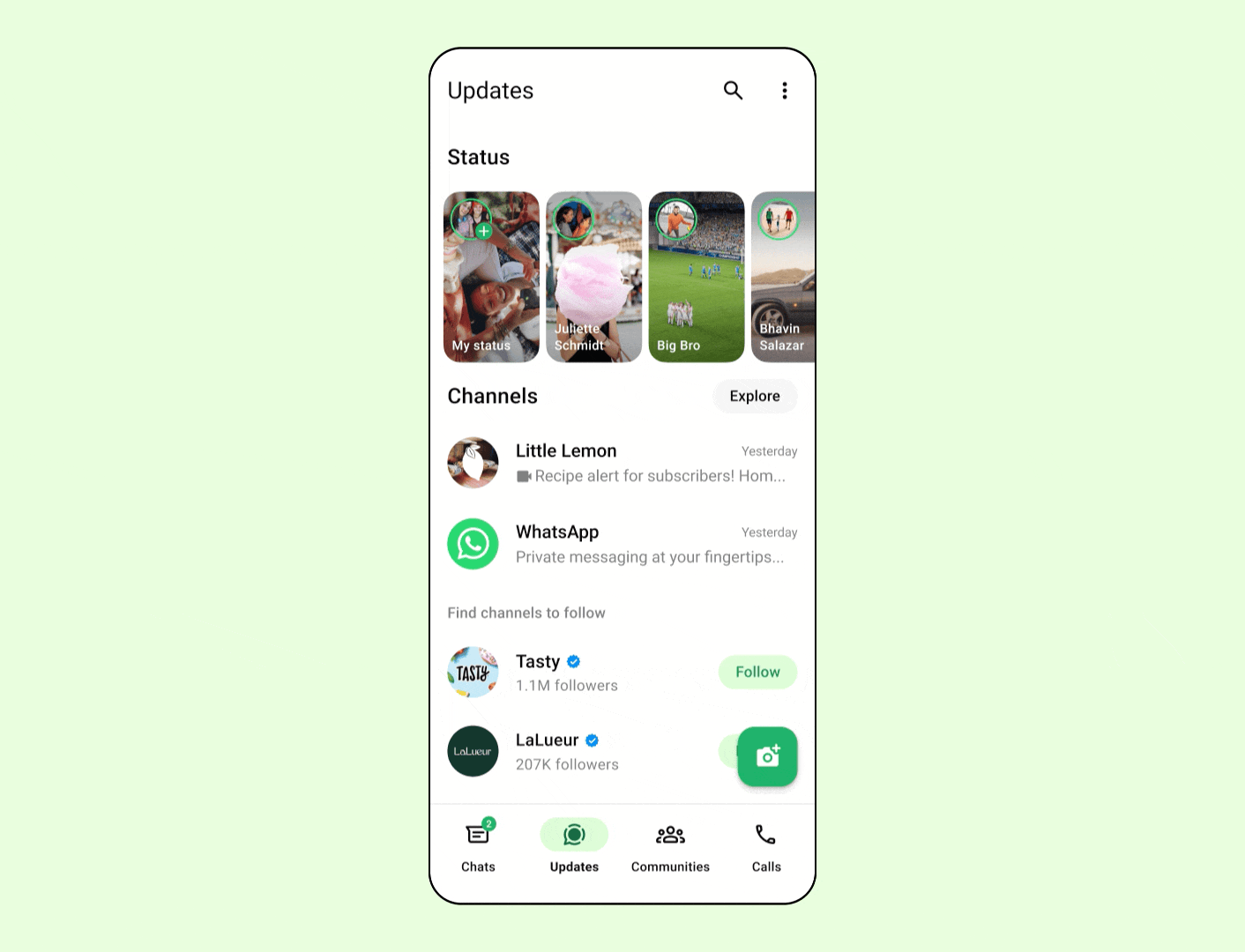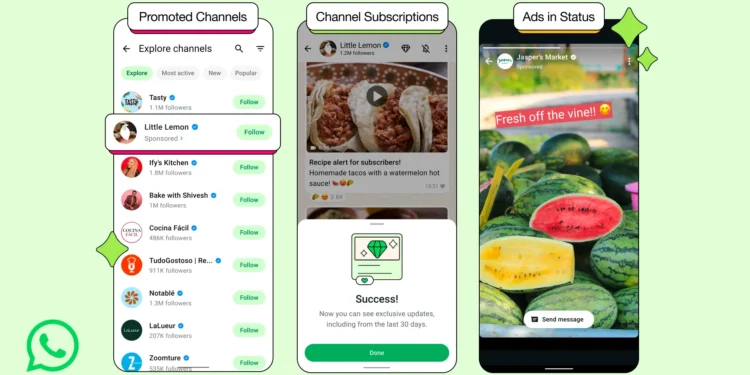
Your WhatsApp experience is about to change fundamentally. After years of maintaining an ad-free environment, the messaging platform used by over 2 billion people worldwide will finally introduce advertisements. This shift represents one of the most significant changes in WhatsApp’s history since Facebook acquired it for $19 billion in 2014.
Meta announced this week that WhatsApp will begin displaying ads within the Status feature and potentially in other areas of the app. The decision comes as the parent company seeks new revenue streams amid declining growth in its core Facebook and Instagram platforms. For users who have enjoyed WhatsApp’s clean, distraction-free interface, this news marks the end of an era.
The Announcement: What Meta Revealed
During Meta’s latest earnings call, executives confirmed that WhatsApp advertising will roll out in phases throughout 2025. The initial implementation will focus on Status ads, similar to Instagram Stories advertisements. These full-screen promotional messages will appear between status updates from your contacts.
Mark Zuckerberg emphasized that the company has carefully considered user experience in designing the ad system. “We’re committed to maintaining WhatsApp’s speed and reliability while introducing relevant advertising that provides value to both users and businesses,” he stated during the announcement.
The rollout will begin in select markets, including the United States, United Kingdom, and Brazil, before expanding globally. Meta projects that WhatsApp ads could generate between $5 billion to $10 billion in annual revenue once fully implemented.
How WhatsApp Ads Will Work
Ad Placement Locations
WhatsApp advertisements will initially appear in three primary locations. Status ads will show up between your contacts’ status updates, displaying for five seconds before users can skip them. Business chat ads will appear at the top of your chat list, marked clearly as sponsored content. Channel ads will integrate into WhatsApp Channels, appearing in the updates feed from channels you follow.
The company has ruled out placing ads within personal conversations, maintaining that private chats will remain ad-free. This decision aims to preserve the intimate nature of one-on-one and group communications that define WhatsApp’s core functionality.
Targeting and Privacy Measures
Meta plans to use a privacy-focused approach to ad targeting on WhatsApp. Unlike Facebook and Instagram, which use extensive user data for targeting, WhatsApp ads will rely on limited information. The targeting parameters include basic demographics like country and device type, interaction patterns with business accounts, and opt-in interests selected by users.
The company emphasizes that end-to-end encryption remains intact for all personal messages. Ad targeting will not access message content, contact lists, or call logs. This approach attempts to balance monetization needs with WhatsApp’s privacy-first reputation.
User Control Options
Users will have several options to manage their ad experience. An ad frequency cap limits users to seeing maximum five ads per day initially. Skip buttons will appear after five seconds on all Status ads. Users can hide specific advertisers through a blocking feature. Feedback options allow reporting inappropriate or irrelevant advertisements.
Meta is also exploring a potential WhatsApp Premium subscription that would offer an ad-free experience for a monthly fee, though pricing details remain unannounced.
Why Now? The Business Case Behind the Decision
The timing of this announcement reflects several converging factors in Meta’s business landscape. Revenue growth from Facebook and Instagram has slowed significantly, with younger users migrating to platforms like TikTok. Investors have long questioned how Meta would monetize WhatsApp’s massive user base. The company faces increased pressure to justify its metaverse investments through profits from existing platforms.
WhatsApp represents Meta’s largest untapped revenue opportunity. With 2 billion active users sending over 100 billion messages daily, even modest ad implementation could generate substantial returns. Industry analysts estimate that achieving just 10% of Instagram’s per-user revenue would add $15 billion annually to Meta’s bottom line.
Competing messaging platforms have already embraced advertising models. Telegram introduced sponsored messages in 2021, while Snapchat has built its entire business around advertising. WhatsApp’s resistance to ads has become increasingly difficult to justify to shareholders demanding growth.
User Impact and Privacy Concerns
What Changes for Regular Users
The introduction of ads will alter several aspects of the WhatsApp experience. Users will encounter promotional content while checking status updates from friends and family. The previously clean interface will include sponsored elements and promotional markers. Load times may increase slightly as ad content downloads. Battery consumption could rise due to additional data processing.
However, Meta insists that core messaging functionality will remain unchanged. Message delivery speeds, encryption standards, and basic features will continue operating as before. The company claims that ads will load in the background to minimize performance impact.
Privacy Implications
Privacy advocates have raised concerns about the advertising implementation. While Meta promises limited targeting, the infrastructure for serving ads requires some data collection. This includes tracking which ads users view and interact with, collecting basic device and usage analytics, and storing user preferences and feedback.
The Electronic Frontier Foundation warns that advertising infrastructure could enable future privacy erosion. “Once the ad system is in place, pressure to increase targeting capabilities will intensify,” says privacy researcher Eva Galperin.
Potential Workarounds or Alternatives
Users seeking to avoid WhatsApp ads have several options to consider. Alternative messaging apps like Signal and Telegram offer different approaches to monetization. Using WhatsApp Web on desktop computers may initially have fewer ads. Older versions of the app might temporarily avoid ad implementation, though Meta will likely force updates eventually.
The potential WhatsApp Premium subscription could provide an official ad-free option, though this transforms the free service into a paid one for users wanting the original experience.
Industry Reactions and Expert Analysis
Technology analysts have offered mixed reactions to Meta’s announcement. Ben Thompson of Stratechery calls the move “inevitable and overdue,” noting that WhatsApp’s massive scale demands monetization. Mary Meeker, renowned internet trends analyst, predicts that WhatsApp ads could reshape mobile advertising by reaching users in emerging markets previously difficult to target.
However, critics worry about user exodus. Digital rights organization Access Now warns that ads could drive users to more privacy-focused alternatives. “WhatsApp built its user base on simplicity and privacy. Ads threaten both,” states executive director Brett Solomon.
Early user sentiment appears largely negative. Social media monitoring shows 73% negative sentiment in posts discussing WhatsApp ads. Common concerns include disruption of user experience, privacy fears despite Meta’s assurances, and worry about increasing commercial messages. Many users threaten switching to alternative platforms.
Looking Ahead: The Future of WhatsApp
The introduction of advertising marks a pivotal moment in WhatsApp’s evolution. Success will depend on Meta’s ability to balance user experience with revenue generation. The company must navigate cultural differences in how various markets perceive advertising. Technical execution will prove crucial to maintaining app performance.
Meta has indicated that ad implementation will evolve based on user feedback and engagement metrics. The company plans quarterly reviews of ad frequency and placement effectiveness. Future features might include interactive ad formats, shopping integration within ads, and augmented reality promotional experiences.
For the broader messaging app ecosystem, WhatsApp’s move could trigger industry-wide changes. Competitors may feel pressure to monetize more aggressively or differentiate through ad-free positioning. User expectations about free services may shift fundamentally.
Conclusion
WhatsApp’s transition to an ad-supported model represents more than a simple business decision. It signals the end of an era where the world’s most popular messaging app operated without direct monetization. While Meta promises careful implementation that respects user experience and privacy, the introduction of ads fundamentally changes WhatsApp’s character.
Users must now decide whether the convenience and network effects of WhatsApp outweigh the intrusion of advertising. The coming months will reveal whether Meta can successfully balance profit demands with user satisfaction. One thing remains certain: the WhatsApp you knew is evolving, and advertising is just the beginning of this transformation.
As this change approaches, users should stay informed about their options and privacy settings. Consider exploring alternative platforms to understand your choices. Most importantly, make your voice heard through feedback channels if the ad experience falls short of acceptable standards. The future of WhatsApp will be shaped by how users respond to this fundamental shift in the platform’s approach.
This article was rewritten with the aid of AI. At Techsoma, we embrace AI and understand our role in providing context, driving narrative and changing culture.













